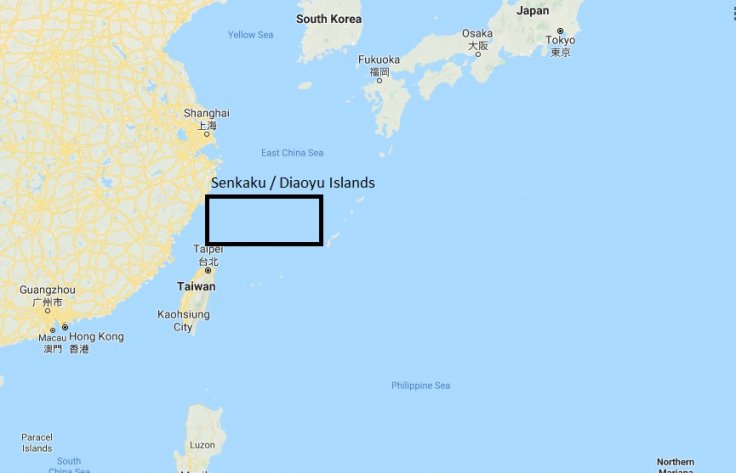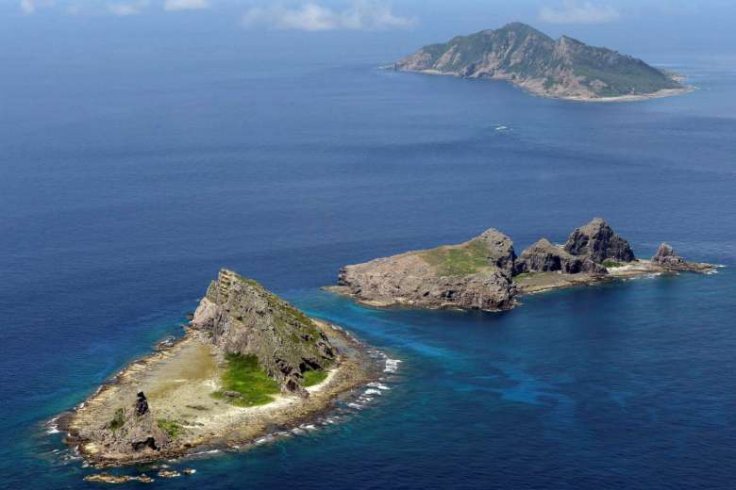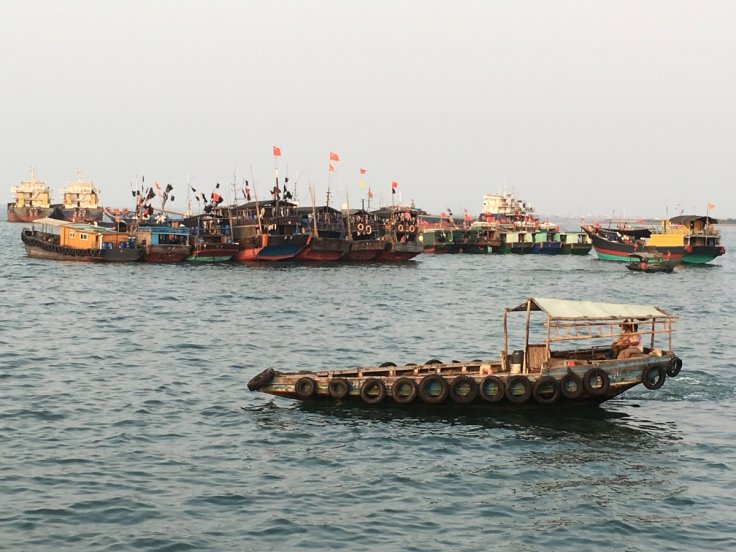From tough terrains of Himalayas to the blue waters of the Pacific, China claims at least a part of those to be its territory. The Asian giant although shares its borders with 14 countries but it is in loggerhead with 19 nations over territories including islands. If the loss of lives at the India-China border over territorial claims was not enough, another one is brewing in the East China Sea with Japan over the Senkaku/ Diaoyu island chain.
Both countries claim the islands to be theirs and have occasionally flared up tensions over the years. But since mid-April, Japan has spotted 67 Chinese government ships near the waters of the islands. And if Japan retaliates, it could trigger a conflict that will even bring the U.S. to the table.
Who Does It Belong To?

The islands, which are situated 1,900 kilometers from Tokyo and 1,700 kilometers from Beijing, have been claimed by both China and Japan for long. Japan calls it the Senkakus after it recognized the islands as part of its territories in 1895.
China argues that it is called the Diaoyus and the islands were a staging point for its fishermen since the 1400s. Even Taiwan, the self-governed province of China that claims to be independent, also has asserted the islands to be its. But Tokyo rejects the claim saying during the survey in 1885, they could not find a trace of Chinese settlement. Last week, in a press conference, Yoshihide Suga, Japan's Chief Cabinet Secretary, said his country would respond firmly and calmly if China were to test its resolve.
"The Senkaku Islands are under our control and are unquestionably our territory historically and under international law. It is extremely serious that these activities continue. We will respond to the Chinese side firmly and calmly," said Suga as CNN reported. China's Foreign Ministry followed suit and said it was their right to carry out patrolling activities. "The Diaoyu Island and its affiliated islands are an inherent part of China's territory, and it is our inherent right to carry out patrols and law enforcement activities in these waters," it said.
As per a Council on Foreign Affairs (CFR) report, Japan has built bases in the nearby islands to protect its claims. The Japan Self-Defense Force has also been readying its marine division and training them on island combat.
Why Is It So Important Now?

The island chain is situated close to prominent international shipping routes making it well-placed for a port city and trade hub if developed. Apart from that, as per CFR, the islands potentially have oil and natural gas reserves — important for both China and Japan. It is also surrounded by rich fishing areas, making it even more significant.
So, if fishermen, boats, armed guards, or even a plane are to land on the islands, it could trigger a clash of international significance like that of the South China Sea. However, such situations could arise soon. On Monday, June 22, the city council of Ishigaki, Japan, will vote on changing the administration of the islands in Okinawa prefecture to streamline practices. If it wins, the Senkaku islands will once again be formally recognized as Japan's territory — a good enough trigger for Beijing.
Why Could US Be Involved?
As per the mutual defense treaty of 1960, the U.S. will be bound to provide military support to Japan in case they are attacked by China. In 2017, the then-Defense Secretary of the U.S., James Mattis, reiterated on the obligation.
"I made clear that our long-standing policy on the Senkaku Islands stands. The U.S. will continue to recognize Japanese administration of the islands and as such Article 5 of the U.S.-Japan Security Treaty applies," he said in a press conference with Japanese the then Defense Minister Tomomi Inada.

However, China believes it's the U.S. who is provoking Japan over the claims of the islands. In China's state-run media Global Times reported saying that "Trump administration doesn't want Japan to repair its ties with China as the U.S. considers them as a strategic rival".
Li Haidong, a professor at the Institute of International Relations of the China Foreign Affairs University, told the Global Times that the dispute over the islands wouldn't be sorted in near future and thus both countries should prevent escalation. "If Japan decided to have an intensive confrontation with China on the Diaoyu Islands, the 'support' from the U.S. will mostly be words rather than actions, and eventually Japan will pay the price," he said.
In the past, there have been multiple confrontations over the islands. In 2012, when Japan nationalized those privately owned islands including Senkakus, it caused rallies on the streets of China. During the protests, Japanese stores and restaurants were vandalized while stones were thrown at Beijing's Japanese embassy.









